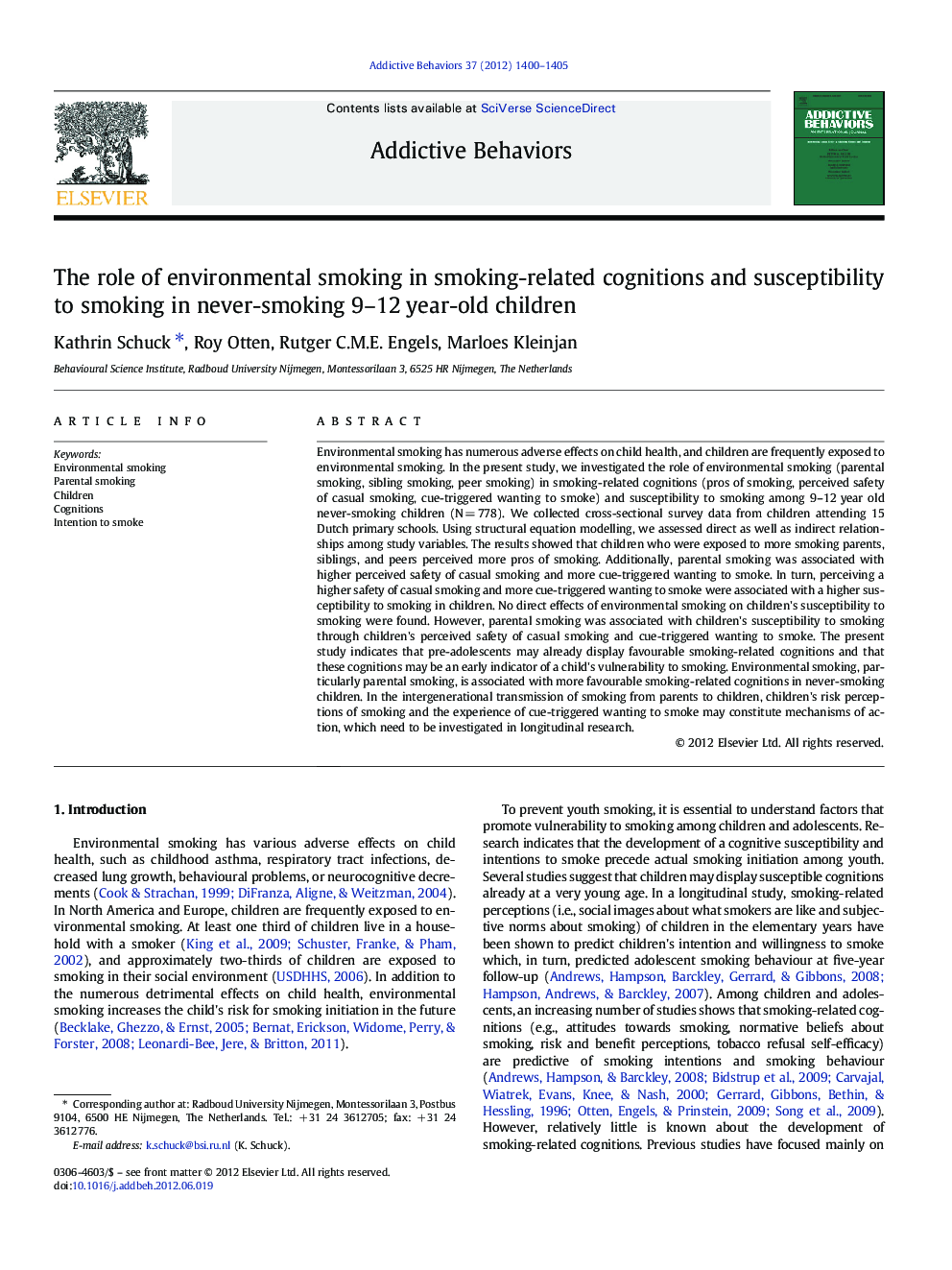| کد مقاله | کد نشریه | سال انتشار | مقاله انگلیسی | نسخه تمام متن |
|---|---|---|---|---|
| 899205 | 915365 | 2012 | 6 صفحه PDF | دانلود رایگان |

Environmental smoking has numerous adverse effects on child health, and children are frequently exposed to environmental smoking. In the present study, we investigated the role of environmental smoking (parental smoking, sibling smoking, peer smoking) in smoking-related cognitions (pros of smoking, perceived safety of casual smoking, cue-triggered wanting to smoke) and susceptibility to smoking among 9–12 year old never-smoking children (N = 778). We collected cross-sectional survey data from children attending 15 Dutch primary schools. Using structural equation modelling, we assessed direct as well as indirect relationships among study variables. The results showed that children who were exposed to more smoking parents, siblings, and peers perceived more pros of smoking. Additionally, parental smoking was associated with higher perceived safety of casual smoking and more cue-triggered wanting to smoke. In turn, perceiving a higher safety of casual smoking and more cue-triggered wanting to smoke were associated with a higher susceptibility to smoking in children. No direct effects of environmental smoking on children's susceptibility to smoking were found. However, parental smoking was associated with children's susceptibility to smoking through children's perceived safety of casual smoking and cue-triggered wanting to smoke. The present study indicates that pre-adolescents may already display favourable smoking-related cognitions and that these cognitions may be an early indicator of a child's vulnerability to smoking. Environmental smoking, particularly parental smoking, is associated with more favourable smoking-related cognitions in never-smoking children. In the intergenerational transmission of smoking from parents to children, children's risk perceptions of smoking and the experience of cue-triggered wanting to smoke may constitute mechanisms of action, which need to be investigated in longitudinal research.
► We examine the role of environmental smoking in children's smoking-related cognitions.
► Parental smoking is related to benefit and risk perceptions and cue-triggered wanting.
► Smoking-related cognitions are related to children's susceptibility to smoking.
► Cognitions may constitute mechanisms in the intergenerational transmission of smoking.
Journal: Addictive Behaviors - Volume 37, Issue 12, December 2012, Pages 1400–1405